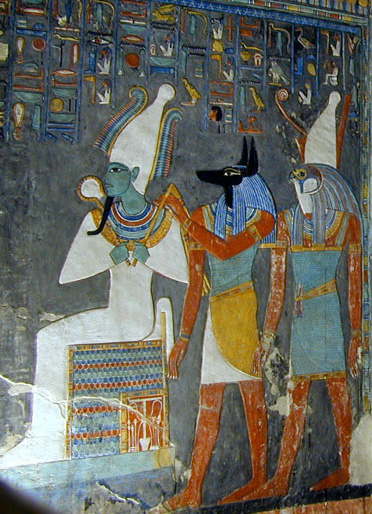I'm not sure why this book is a best seller. “On the Existence of Gods” is a highly eclectic, to the point of being confused, debate between Vox Day and one Dominic Saltarelli. Their exchanges give the impression of a debate in cyberspace between two “nerds”. Indeed, both debaters first encountered each other at an atheist on-line discussion forum. The nerdy on-line impression is compounded by the constant interjections of three (or is it four?) “judges”, who sound like participants in the debate itself. Indeed, one of the judges had to be replaced, since he apparently *did* interfere in Day's and Saltarelli's debate a bit too much!
Vox Day is a rather notorious alt-right blogger, politically
situated somewhere to the right of Genghis Khan. He belongs to the same milieu
as Roosh V, Mike Cernovich and Milo. In contrast to his colleagues, Vox Day is
a Christian. He has previously authored an extended polemic against New
Atheism, the book “The Irrational Atheist” (I admit it's interesting). Dominic
Saltarelli is previously unknown. He was the only atheist willing to rise to
the occasion and debate The Supreme Dark Lord (as Vox jokingly calls himself on
Twitter). The subject of the debate is captured in the book title: the
existence of gods and/or God. Unsurprisingly, Vox defends the proposition,
while Dominic attacks it.
The judges, or what was left of them, awarded two of three rounds to Vox.
Although I'm neither a Christian nor a great fan of things alt-right, I admit
that Vox *did* win the debate, such as it was. Many of Dominic's arguments are
frankly weird, and others are irrelevant. Some are both. He also sounds less
prepared than his opponent. Dominic's main argument (which he repeats ad
nauseam, the way John Loftus repeats his Outsider Test of Faith) is that the
first explanation for a phenomenon is usually wrong. Examples include
geocentrism, Newtonian physics and first-time attempts by kids to explain where
babies come from. So why should we assume that the existence of gods is the
best explanation for “supernatural” phenomena? This, of course, is too simple.
First, we don't know whether “gods” was the first explanation. What did the
Neanderthals believe in? We *do* know that Zeus wasn't part of the first
explanation (since other forms of polytheist worship are older). Logically
(Dominic's own logic) Zeus can therefore be real! And for all we know, monotheism
is an even later development, hence belief in the Biblical God isn't a first
explanation either. As both Vox and the judges point out, the true (“second”)
explanation, while not describing “gods” in, say, the Greek way, might
nevertheless include a different kind of god-concept. (This is compatible with
the Bible being a unique revelation.)
Another argument constantly repeated by Dominic is that the true explanation
must be very strange, and that “gods” is too simple. His main example here is
quantum physics. But this doesn't work either: Christianity is very strange,
and also much later than polytheism, so by Dominic's own logic, it could
therefore be true. (C S Lewis actually used this argument.) Nor is it clear (to
me, at any rate) whether polytheism really is “simple”. Was the idea of a god
named Zeus living on top of Mount Olympus really a “simple” one, especially
since the very same Zeus was simultaneously buried in a tomb on Crete…? Apart
from these two main exhibits, Dominic revels in constructing arguments for
atheism which are indeed both new and strange, such as his contention that time
is non-linear, that cause doesn't always precede effect, and that prophecy
might the result of mystery butter… (Surely, the existence of such butter presupposes
a mystery churner?)
Vox Day seems to have two main arguments for the existence of gods. One is the
moral argument, taken from C S Lewis' “Mere Christianity”. The other is
empirical: the main reason why people believe in gods, is that they keep seeing
them. Vox also heavily rubs in that absence of evidence isn't the evidence of
absence. The Aztecs originally didn't believe in White Europeans, yet they sure
existed. In a somewhat original move, he concedes that the gods might be space
aliens or time travelers, but since modern science can't detect any of them,
the superhuman entities might still be gods. A problem with Vox Day's arguments
is that he conflates “the existence of gods” with “the existence of God”.
However, the former doesn't necessarily entail the latter (or vice versa). The
arguments for the existence of polytheist gods sound more empirical, while
those for the existence of a creator-god are more philosophical. It should be
noted, however, that Vox Day's theology is somewhat idiosyncratic. It's not
entirely clear whether he is a monotheist in the strict sense of that term at
all!
Overall, I consider Vox Day's arguments weaker than expected, although still
stronger than Dominic Saltarelli's. I also wonder how “atheist” Saltarelli
really is. At times, he sounds more like an agnostic or even a pantheist than a
strict atheist-materialist. Perhaps this explains why he was ready to debate
with an equally peculiar Christian, while all the BAU atheists decided to stay
away from the Cyber Octagon…
I can't recommend “On the Existence of Gods” to serious seekers, but perhaps it
can function as lighter bed time reading, if “philosophical” exchanges on
over-populated on-line forums is your cup of tea.

No comments:
Post a Comment